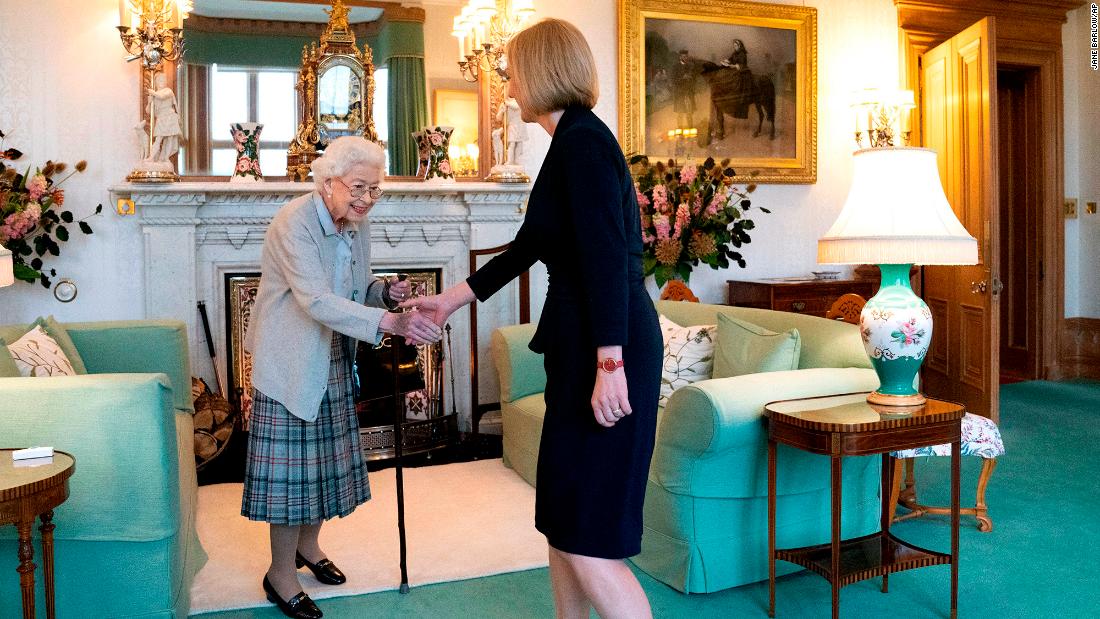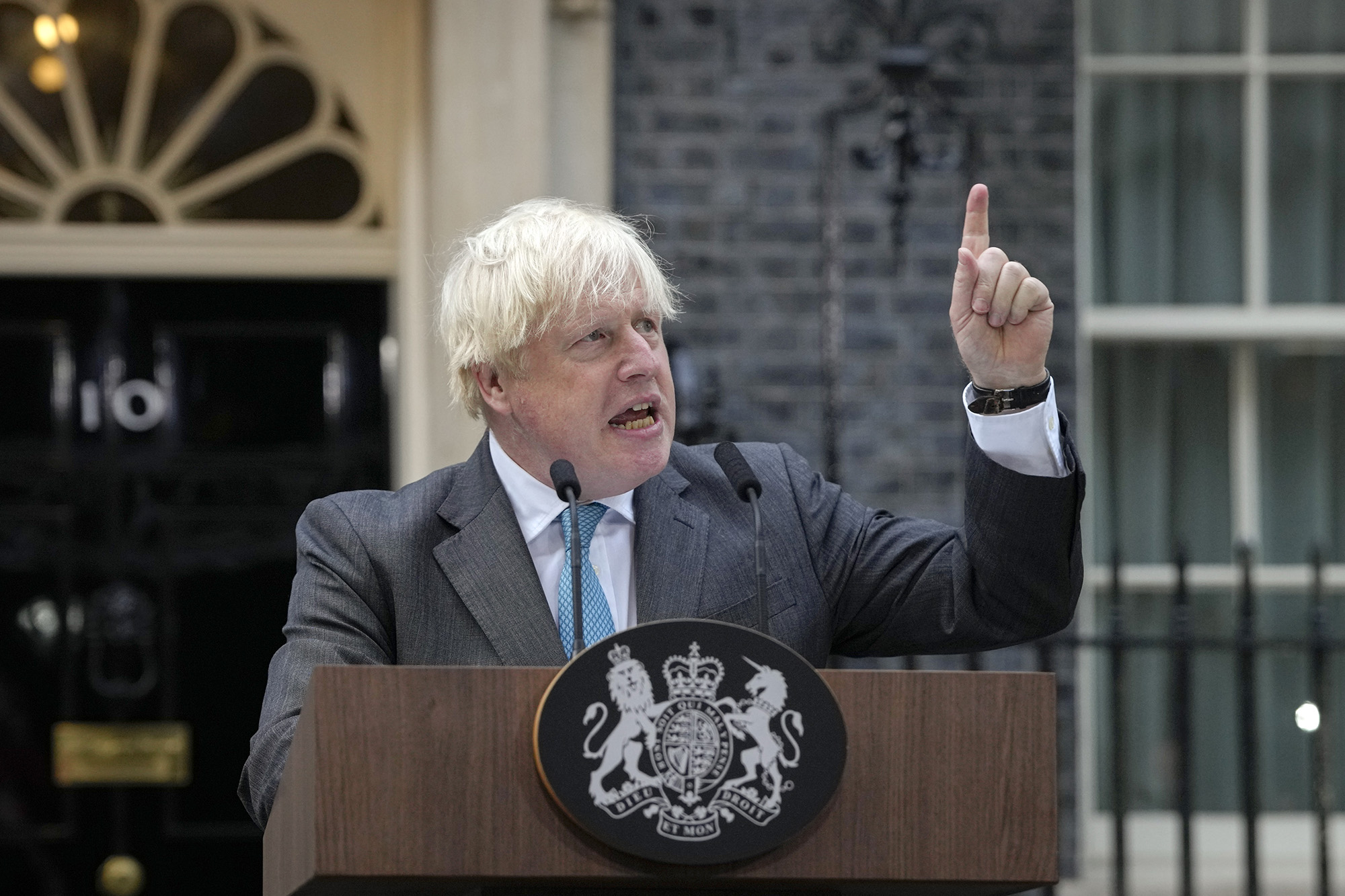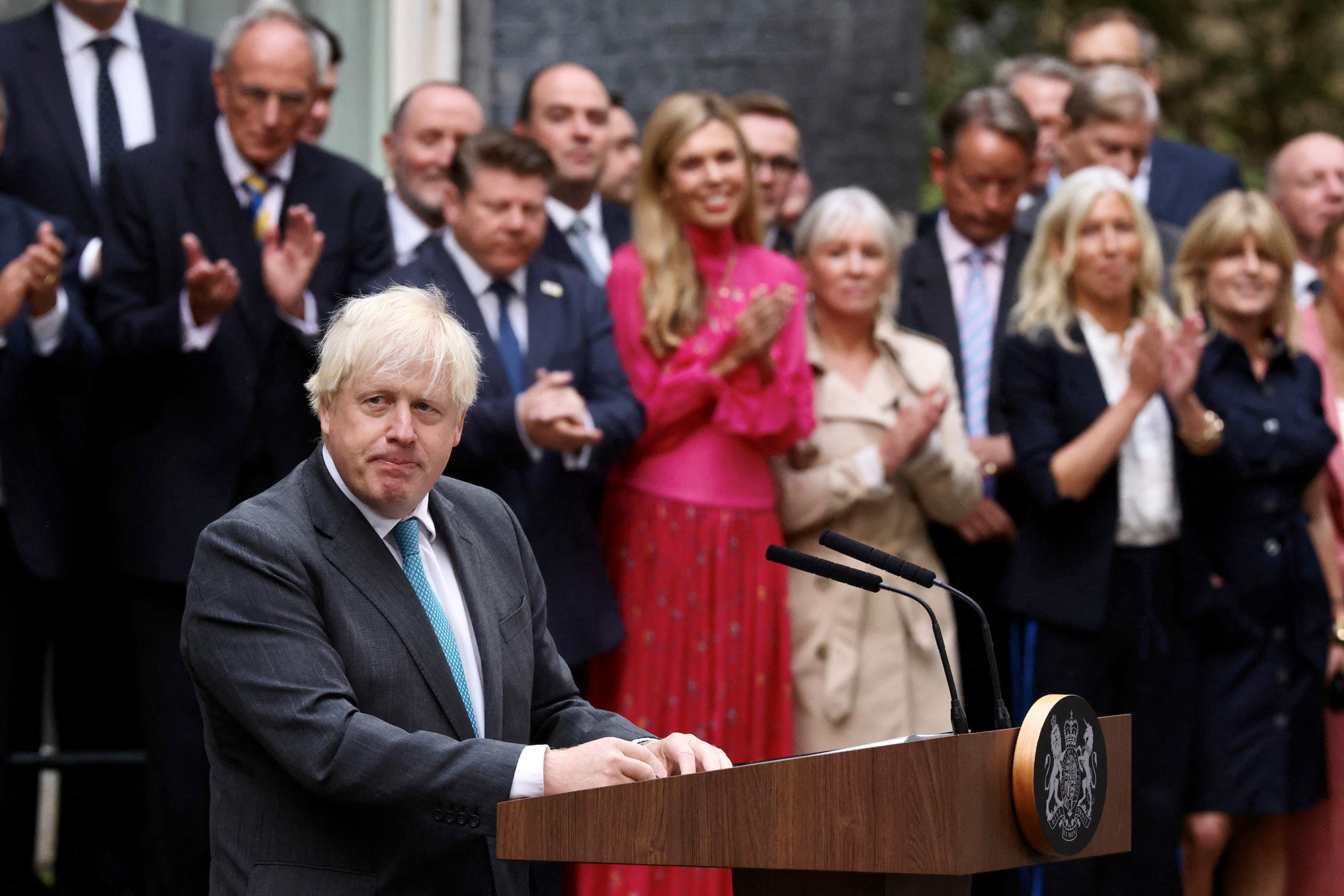

Boris Johnson’s final speech as prime minister went the same way as many of his previous public outings: he loudly touted what he sees as his achievements, made no mention of his failures or scandals, and showed a flash of bitterness towards those who ended up bringing him down.
“This is it, folks,” Johnson began, before he launched into a well-rehearsed list of domestic policies he is keen to chalk up as successes.
But Johnson was also keen to define himself as a statesman and was quick to cite his response to the Ukraine crisis early in the speech, suggesting that the United Kingdom’s provision of arms “may very well have helped change the course of the biggest European war of 80 years.”
As he concluded his speech, he added among his government’s triumphs: “Speaking with clarity and authority, from Ukraine to the Aukus pact with America and Australia, because we are one whole and entire United Kingdom, whose diplomat security services and armed forces are so globally admired.”
That emphasis could hint towards future career plans outside the UK — or it could merely be a tacit acknowledgement that at home, he leaves office with his country mired in an economic crisis and millions of households struggling to make ends meet.
Johnson declined the opportunity to apologize for Partygate, the scandal over a series of lockdown-era gatherings inside Downing Street, which served as the first and largest domino in his downfall. Nor did he acknowledge the decline in public trust in his government, or the constant charges from politicians left and right that he has degraded public standards.
But he did suggest that, even after a summer to reflect on the collapse of his leadership, he retains some bitterness about the way he was forced out.

His jibe about the leadership contest becoming a “relay race” after colleagues “changed the rules” came well before any mention of his successor, Liz Truss. And he reminded the public of his sweeping election victory less than three years ago, which left many pundits predicting a new political dynasty with Johnson at the helm.
“I’m proud to have discharged the promises I made to my party when you were kind enough to choose me, winning the biggest majority since 1987, the biggest share of the vote since 1979,” Johnson said.
But British politics is notoriously brutal; his colleagues moved quickly to depose Johnson this summer after the glimmer of that electoral success was extinguished by months of scandal and sinking poll numbers. And now, after being cheered off from Downing Street, Johnson is traveling to Scotland to formally submit his resignation to the Queen and begin his life as a private citizen.
